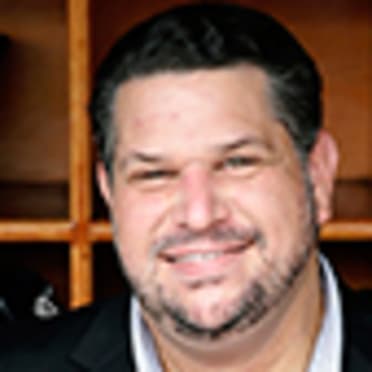Who is best bet on market: Rodón, Verlander or deGrom?
Panel of MLB.com reporters debates the merits of each option
Signing free agents almost always involves a gamble, mainly because the older the player, the higher the injury risk. Three veteran pitchers in particular are going to command high dollars on the free-agent market this offseason -- and all three have had injury issues in the not-so-distant past. Through the bidding process, teams will have to decide if the reward will outweigh the risk.
To this end, we posed this question to a group of MLB.com reporters: Among Justin Verlander, Jacob deGrom and Carlos Rodón, who’s the best bet for a team looking for an anchor for its rotation?
Alyson Footer, editor/moderator: This is an interesting debate because you could really make a case for and against each of the pitchers we’re discussing. All three pitchers have a fair amount of uncertainty surrounding them, whether it’s age or injury history -- or both.
If I had to hedge my bets on one right now, between Justin Verlander, Jacob deGrom and Carlos Rodón, I think I’m leaning Verlander. Or maybe deGrom. This is hard! What say you?
Anthony Castrovince, columnist/reporter: My answer is ... Kodai Senga?? He might actually be the least risky of anybody in this group.
Mark Feinsand, executive reporter: Funny you say that, Castro. That was going to be my answer, too!
All three pitchers we’re discussing have the ability to dominate, but all come with question marks.
Castrovince: Of the three we are ACTUALLY talking about, I think I would lean toward Rodón because of the age factor. The left shoulder fatigue at the end of 2021 scared off some people (including the White Sox, who did not extend him the qualifying offer), but he posted up in 2022 and is the youngest of the three by a good margin.
Sarah Langs, researcher/analyst: I think it really depends on which team we’re talking about. If you’re a rebuilding team, like the Orioles, I think Rodón makes the most sense, because he is the youngest and has the most room to continue growing. If you want to win the World Series next year, it’s probably Verlander or deGrom -- with the idea that deGrom, of course, has more of an injury concern.
Feinsand: If you’re talking about 2023 and maybe 2024, it’s Verlander. His performance at age 39 was simply spectacular. I don’t know if you can count on more than one or two more years of pitching at that level, however.
But I agree that if you’re talking long term, Rodón is the safest bet -- albeit the least talented of the trio.
Castrovince: I think Slangs pretty much nailed it. The question is contract length. How many years will it take to sign Verlander and deGrom? Verlander most certainly wants the three years that [Max] Scherzer got -- and that gets incrementally riskier with each pitch. deGrom will be a fascinating free agent.
Anthony DiComo, Mets beat reporter: I think it's a little bit of, "What are you looking for?" Justin Verlander is Justin Verlander, but he's going to be 40 on Opening Day. It's fun to talk about him defying Father Time until the inevitable point when he stops doing that. Every year, it gets harder. Jacob deGrom is Jacob deGrom, but his range of outcomes seems widest: anything from "best pitcher in the world next season" to "really not much left in that arm." There's a huge risk-reward when it comes to deGrom.
I actually like Rodón in terms of long-term potential, because there is a path for him in which he manages to put his injury history behind him. And if that's the case, he -- at age 29 -- has the longest runway for success of any of these guys. But Rodón at his best is not Verlander or deGrom.
Feinsand: If I’m a contender such as the Yankees, Dodgers or Braves, I’m looking at Verlander and deGrom. Give them a Scherzer-type AAV on a shorter-term deal. If I’m the Rangers or Orioles, I would prefer to lock in Rodón on a four- or five-year deal.
Footer: Prior to the postseason, I would have said Verlander is as close to a sure thing as you can get among this group. He was the unanimous choice for AL Cy Young. He has a completely remade elbow, which could very well allow him to pitch until he’s 45, as he’s stated in the past. But the postseason still bugs me. He redeemed himself in the World Series with a good outing in Game 5 after a terrible Game 1 start, but he wasn’t dominant. I can’t help but wonder if with each passing year he’ll hit that wall earlier and earlier in October.
Langs: I do think, postseason notwithstanding, Verlander is not like the typical pitcher who is going to be 40 on Opening Day. He has led the Majors in WHIP each of the last three full seasons that he’s pitched -- in 2018, 2019 and this past year. What he does is very replicable, even as he ages.
Castrovince: We just have no comparable for Verlander. He has already created his own case study by coming back from Tommy John at age 39 and pitching 195 innings between the regular season and postseason. What will the lag effect (if any) of that be? I wouldn't bet against the guy after what he's already accomplished, but there's no denying he's trying to do something unprecedented. Prior to him, there had never been a pitcher his age to come back from TJ and be even a capable starter, let alone a Cy Young winner.
Langs: And he was the first guy to win after throwing a total of zero innings the year before!
Feinsand: Of course we have a comp for Verlander: Tom Brady!
DiComo: But Sarah, there is no such thing as a typical pitcher who is going to be 40 on Opening Day. Pitching at that age is atypical in and of itself. In the last 50 years, there have been seven pitchers to produce at least one five-win season in their 40s. Verlander is obviously good enough to join that group, but you're betting against some heavy forces there.
Footer: What Verlander does have in his favor, from a team standpoint, is a likely willingness to settle for a shorter contract that, while highly expensive, won’t handcuff a team for five, six, seven years. That makes him attractive to plenty of win-now teams. That limits his options, but pretty much guarantees he'll get the money he's looking for.
Feinsand: I think the Scherzer deal is the blueprint for Verlander. Maybe two years, $85-90 million -- with an option for 2025.
Castrovince: Rodón is most definitely not in the Verlander/deGrom/Scherzer tier. However, the team that comes away with him could wind up very happy. In the last two seasons, he has really harnessed his fastball/slider combo. His 157 ERA+ in that span is the fourth-best among those with at least 300 innings (Scherzer 168, Julio Urías 163, Alek Manoah 158).
Footer: Let’s get the beat writer perspective, Tony ... the Mets have been linked to Verlander and, obviously, deGrom. You think they're favoring one?
DiComo: All things being equal, I see the Mets as preferring deGrom. Part of that is sentimental: They like the idea of having this guy be one of their all-time legends -- and there's obviously a part of deGrom that likes that idea, as well. But there's also some legitimate baseball thinking here. Sometimes, I feel like we talk about deGrom as if he's already cooked. Yes, there is risk, but it's not a leap of faith at all to think he could be the best pitcher in baseball next season.
Langs: This is one of those theories that I haven’t actually dug into, but I feel like we often expect that injury-prone players, especially pitchers, tend to return to the teams they were on. Something about the team and medical staff already knowing what they’re dealing with. I wonder how that might apply for deGrom, but he also isn’t the typical such pitcher -- because he’s deGrom.
Feinsand: Here’s a question: Is a team better off signing Senga and rolling the dice on another guy like Nate Eovaldi or Jameson Taillon, rather than going all in for Verlander and/or deGrom? If I’m a mid-level team trying to take the next step, I’m not sure that isn’t the way to go.
DiComo: I guess my question would be, if you're looking for a short-term deal on a high AAV, why not then go deGrom instead? It's probably a bigger risk given his injury history, but it's also likely a bigger reward because it can potentially help you longer term. This may be a relatively even comparison for 2023, but I have more confidence in deGrom than Verlander once you start getting into 2024-25.
Feinsand: Of course, if you’re talking short-term deal, then 2024-25 might not matter.
Castrovince: deGrom is absolutely terrifying in good and bad ways. When he came back slinging 101 [mph] in his first start this year, it was both delightful and frightening.
Feinsand: Delightful and frightening feels like the perfect description of Mets fans’ emotions in general.
Castrovince: Always.
Footer: The more time goes by, the less I believe the Astros will re-sign Verlander. With six other strong starting pitchers, they really don't need him.
Feinsand: The Astros seem more focused on first base (José Abreu? Josh Bell?) than the rotation.
Castrovince: Correct, the Astros don't have the incentive some other contenders do to go to that extra year or dollar.
DiComo: One other thing to note regarding Verlander vs. deGrom -- unlike Verlander, who has frequently gotten crushed in the playoffs, deGrom has proven time and again that he can gut through without his best stuff -- look at NL Wild Card Game 2 for the latest example. Even if the stuff starts declining for him, I like his ability to push through it. He has a dynamic changeup that he can get more value out of and an underrated curveball that Max Scherzer started encouraging him to use more often this past season. deGrom is a smart pitcher who has the ability to evolve into his late 30s.
Feinsand: Verlander has already evolved through his late 30s. Now, it’s on to the 40s.
Castrovince: DiComo has sold me on deGrom. Those guys are diBest.




